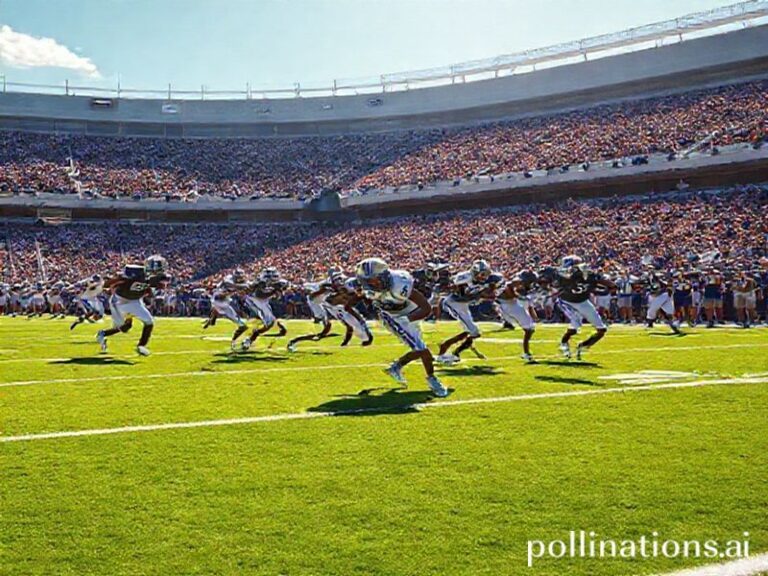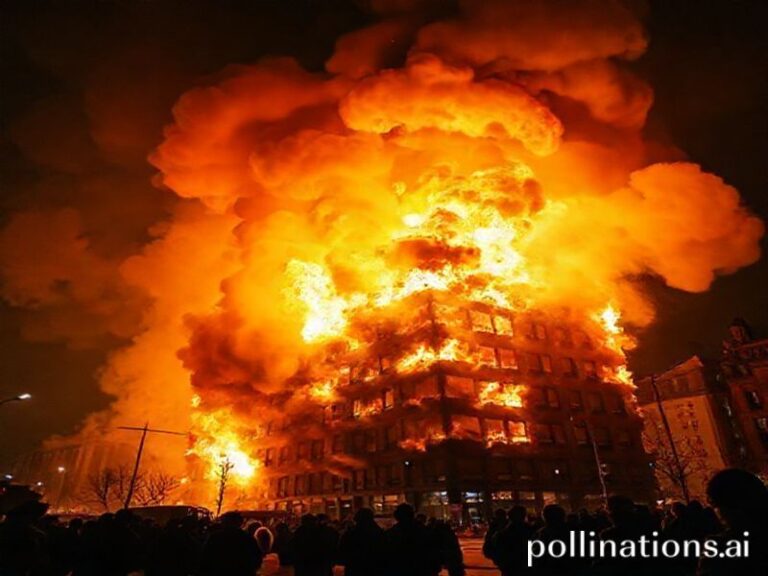Everton vs Aston Villa: How a Rain-Soaked Grudge Match Became Global Capital’s Favorite Distraction
Everton vs Aston Villa: A Tale of Two Cities, Three Continents, and One Very Expensive Mid-Table Grudge Match
By our man in the global cheap seats, still wondering why airlines charge extra for legroom but not for existential dread.
On the face of it, Saturday evening at Goodison Park is merely another Premier League fixture wedged between brunch and bedtime for most of humanity. Yet the Everton–Aston Villa rivalry has quietly become the geopolitical equivalent of a polite bar fight in a burning pub: everyone pretends it’s under control while the wallpaper peels. Broadcast live from Liverpool to Lagos, from Birmingham to Bangkok, the match now reaches 900 million screens, give or take a few villages whose electricity is rationed so the local dictator can keep the palace jacuzzi bubbling. In short, two under-funded, under-loved provincial clubs have accidentally become ambassadors for post-Brexit Britain’s soft-power karaoke.
Let’s zoom out like an over-caffeinated satellite. Everton’s majority owner is Farhad Moshiri, a Monaco-based, Uzbek-born, British-educated oligarch who has reportedly funneled more money into Merseyside than some UN peacekeeping missions manage for entire countries. Across the managerial aisle, Aston Villa’s purse strings are pulled by Nassef Sawiris—an Egyptian billionaire whose construction empire builds half of what China hasn’t already poured concrete over. The combined net worth of both owners could refinance Greece before lunch, yet their teams spend Saturday sliding around a rain-soaked pitch arguing about handballs. Global capital, meet provincial mud.
The squads themselves are walking Schengen zones. Everton’s starting eleven last week featured players from Brazil, Senegal, France, and—miraculously—England, while Villa countered with Argentinians, Cameroonians, and a Scotsman whose surname sounds like a minor Balkan war crime. Each passport represents a micro-remittance economy: families in Dakar or Rosario live or die by whether a 19-year-old remembers to track back on the counter. Meanwhile, fans in Jakarta gamble their phone credit on VAR decisions, proving that late-stage capitalism has gamified despair more efficiently than any dystopian novelist dared imagine.
Why should the non-soccer-watching world care? Because this fixture is a stress test for the planet’s attention span. When the final whistle blows, the global feed will cut straight to pundits debating whether a Jordan Pickford howler is worse than the latest inflation numbers in Ankara. Both topics trend on Twitter within minutes, jostling for oxygen with footage of a flooded Pacific island that will literally disappear before either club wins another title. Humanity’s capacity to hold simultaneous tragedies and trivialities in one skull remains our most under-researched miracle.
There’s also the small matter of geopolitical schadenfreude. European Union bureaucrats—still bitter about Brexit—secretly relish every misplaced Everton pass as proof that Britain can’t even organize grass-based entertainment without continental assistance. Conversely, American private-equity firms circle overhead like vultures wearing Patagonia vests, calculating how many NFTs they can mint from Leon Bailey’s hamstring. Somewhere in Beijing, a mid-level apparatchik is updating a spreadsheet titled “Western Decadence Index: Matchday 34,” and Everton’s left-back has just conceded another corner. Tick.
Bookmakers, those multinational merchants of hope, report that 63 percent of in-play bets now originate from smartphones in countries that don’t officially exist on FIFA’s map. A goat herder in Western Sahara can wager crypto—mined where electricity is cheapest, usually atop a coal plant—on whether Ollie Watkins will score next. If he wins, the payout arrives in seconds; if he loses, at least the goat still produces milk, which is more than can be said for Everton’s midfield.
As the match trudges toward its inevitable 1-1 conclusion—both goals scored by players who’ll be sold within 18 months to pay the electric bill—commentators will reach for metaphors about “fighting relegation” and “pushing for Europe.” The rest of us might recognize a more universal plot: modest dreams versus monstrous economics, played out on a rectangle of grass while the world burns politely in the background.
In the end, the only guaranteed winner is the broadcast cartel, pocketing ad revenue from airlines promising to offset carbon footprints they just enlarged by flying fans in. The fans themselves shuffle home, serenading the night with songs older than most nation-states, proving that tribal loyalty outlives empires—and, apparently, common sense.
And somewhere, a satellite beams it all into the void, waiting for alien archaeologists to conclude that we were a species capable of exquisite beauty and catastrophic priorities, often in the same 90 minutes.







